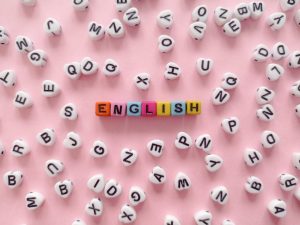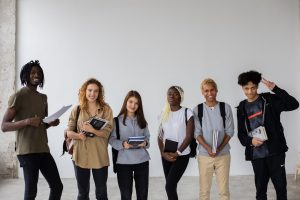I’ve worked with IB students for years, and I can state with certainty that one of the best things about the IB is its interdisciplinary nature, which is also one of its most underrated aspects. This is why so many IB grads do so well in college. Integrating your knowledge into a coherent whole requires you to draw links between seemingly unrelated topics.
The program’s design includes such links, which is what the IB generally states. When we look closer at transdisciplinary skills, we can see how this mindset changes how we learn, think, and solve problems.
What Does “Interdisciplinary” Mean in the Context of the IB?
The interdisciplinary nature of the IB is what distinguishes the program from most high school systems, in my experience working with hundreds of IB students. To put it simply, your subjects are not separate areas; they relate to each other, build on each other, and connect. This method is deliberate, under typical IB standards. The idea is that the skills and concepts you learn in one area can help you understand something else better.
For instance, when you use statistical analysis from Math in a Biology Internal Assessment, you’re not just “borrowing” a formula. That way, you’re adding cross-subject proof to your case, which makes it stronger. In the same way, TOK ideas like bias and reliability can help you write better History essays, and CAS reflections can help you come up with ideas for your extended essay.
The fact that this method is so like real life makes it so useful. In everyday situations, problems don’t usually fit nicely into one group; they need perspectives from a lot of different fields. That’s why the IB puts a lot of resources into supporting adaptable thinking.
Once you become aware of these connections, you will be able to handle your work better, your analysis will be stronger, and your confidence in all areas will grow greatly. I think this is where IB students learn a way of thinking that helps them after exams, too.
What Is the Interdisciplinary Learning in the International Baccalaureate?
The IB’s research makes it very evident that every program, from PYP to MYP to DP to CP, is interdisciplinary. Their report says that the IB already accomplishes a great deal well when it comes to mixing disciplines in a manner that makes sense and feels natural for students.
One of the most interesting things about the study is how it points out specific methods that really do work:
- Teachers provide students with strong scaffolding to help them through each level.
- Tasks that are real-world and seem important and inspiring.
- Teachers may work together and share their knowledge.
- A student-centered approach that promotes independence and curiosity.
I know that this level of understanding makes a big difference. Whether using TOK thinking in a lab report or putting Economic ideas in a geography project, students become more interested in their studies and begin to see connections everywhere when they are aware of why. That’s exactly what the IB wants: learning that’s not just about passing tests, but also about preparing for the challenges of life.
A Closer Look at Transdisciplinary Skills in the IB
When we take a closer look at transdisciplinary skills, we’re referring to the set of fundamental abilities that every IB student acquires, regardless of the classes they take. These skills help you grow, think critically, and explain clearly throughout the whole program. I’ve found that these skills help with grades and also make learning a lot more fun and effective.
Communication
I put communication at the top of my list because I believe it is the most important skill. Changing your style and tone to fit your audience can make a huge difference in how your work is received.
For the IB, this could mean writing your Extended Essay in a formal, concise academic style, while your CAS portfolio is created in a more personal and thoughtful style. You’re not just “writing differently”; you’re also showing that you understand the situation, the audience, and the goal, which is very important to colleges.
Research and Information Literacy
From what I’ve seen, the skills that make the difference between good work and average work are research and information literacy. This isn’t just about Google, though excellent search skills are essential. It’s about:
- Using databases to find reliable research sources.
- Knowing how to check facts against each other.
- Using the correct type of citations without wasting time.
- How to find bias and holes in your sources.
When students master these techniques, their TOK essays become sharper, their IAs are more convincing, and their arguments in EE stand on solid ground.
Critical and Creative Thinking
You can use critical thinking to look at data and find logical flaws, and creative thinking will push you to come up with new, well-thought-out answers. The IB mixes these all the time. Magic happens when you can question an idea and then offer a different one that is both new and useful.
One example would be comparing two different views of history and then proposing a third perspective that considers both.
Self-Management
It’s easy to forget how vital self-management is, but it’s the skill that makes all of your IB tasks possible. Keeping track of IA deadlines or breaking down big projects into doable pieces, being organized makes you less stressed and improves the quality of your work.
Set aside time to think, even if it’s only ten minutes a week. It’s amazing how much better decisions are made after that.
Social and Collaboration Skills
Group work is less of a pain and more of a chance thanks to social and collaboration skills.
It’s important to be able to give and receive helpful comments, even on individual projects. I think that students who work together respectfully tend to produce better work and enjoy the process more because they aren’t afraid to pick up tips from their peers.
Related Posts:
- Top Tips for Choosing the Right Topic for Your IB Internal Assessment
- Internal Assessment Mistakes
- How Can I Write a Good IB Internal Assessment?
- What Exactly Is an Internal Assessment in the IB Curriculum?
- Best Apps and Websites for IB Students
- How to Write a Film Internal Assessment?
- The Evolution of the IB Programme: Its History and Progression
Buy IB IA with Full Confidentiality!
Grab your IB IA with full privacy guaranteed.
Our no-leak policy keeps your details 100% secure.

Interdisciplinary Nature of the IB Subjects
The fact that subjects easily flow into each other, often in ways you don’t expect at first, is one of the things I love most about the IB. The IB students who do best are the ones who notice these overlaps early on and learn how to use them to their advantage.
For example, TOK and the sciences both pay considerable attention to claims about knowledge, their limits, and doubt.
So, the ability to think deeply and critically that you learn in TOK can directly improve the depth of your Science IA, making your results more complex and believable.
The Environmental Systems and Societies (ESS) is an excellent example of how different fields can work together. It combines biology, geography, and politics to examine environmental problems from multiple perspectives. In the same way, Economics and IB Mathematics often go together, mainly when statistical models are used to figure out past trends or how the market is acting now.
Below is a simple table that shows how several typical IB subjects are connected:
| Subject Pairing | Connection Point | Practical Example |
| TOK + Sciences | Knowledge claims, uncertainty | Applying TOK analysis to lab conclusions |
| ESS | Ecology + human systems | Using policy data to evaluate environmental impact |
| Economics + Mathematics | Data modelling | Analysing inflation trends using regression analysis |
| Literature + Theatre | Text informs performance | Staging choices based on literary symbolism |
| CAS + EE | Real-world insight to research | Using volunteer work to shape EE topics |
The arts even make connections. In Literature and Performance, literary analysis affects how situations are set up and acted out. If you’ve ever taken an idea from CAS and used it to create an Extended Essay research topic, you know how strong these connections can be.
I think that if you start searching for these connections, you’ll see that the IB is a giant web of ideas that are all connected and waiting for you to put them together.
Final Tips and Strategies for an IB Interdisciplinary Mindset
From what I’ve seen, the best way to get the most out of the IB’s cross-disciplinary nature is to plan the links between topics instead of letting them happen by chance:
- A concept map is one of my favorite tools for this. First, choose a broad concept, such as “globalization.” Then, look at how it shows up in Economics, Literature, History, and even the Sciences. This map helps you remember things more effectively when writing essays or studying for exams.
- Another tool I recommend is a transfer notebook. In it, you jot down short, focused entries about how a concept, method, or skill from one subject helped in another. This habit builds a personal library of cross-subject methods that you can use repeatedly.
- Designing dual-purpose notes is another time-saver. If you write them with both your Internal Assessments and your final exams in mind, you’ll cut down on duplicate work and make revision more efficient.
- And don’t underestimate the power of a weekly reflection. Take ten minutes every week to ask yourself: “What connections did I make this week?” and “Where could I test this skill next?” This regular self-check keeps your mind trained to spot overlaps.
If you need extra help, BuyInternalAssessment.com can be a lifesaver. We specialise in producing high-quality, IB-compliant Internal Assessments, which means you can see professional examples of how to integrate ideas across subjects.

Nick Radlinsky
Nick Radlinsky is a passionate educator, marketer, and management expert with over 15 years of experience in the education sector. After graduating from business school in 2016, Nick embarked on a journey to earn his PhD, fueled by his dedication to making education better for students everywhere. His extensive experience, beginning in 2008, has made him a trusted authority in the field.
Nick's groundbreaking article, published in Routledge's "Entrepreneurship in Central and Eastern Europe: Development through Internationalization," showcases his keen insights and commitment to improving the educational landscape. Guided by his motto, "Make education better," Nick's mission is to simplify students' lives and promote efficiency in learning. His innovative ideas and leadership have helped transform countless educational experiences, setting him apart as a true pioneer in his field.




